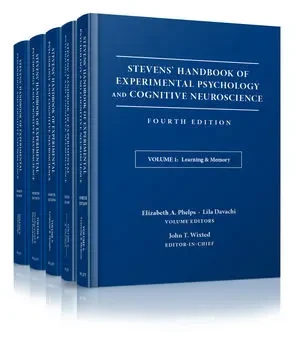
The Origins of Cooking
Smartfox Books Code: PR31042
Normally: $295
Description:
Ferran Adria joined the staff of elBulli restaurant in 1984 and rapidly progressed to head chef with three Michelin stars and other
accolades. Famous for his pioneering culinary techniques, he has been applauded and imitated around the world. Since elBulli s closure in
2011, Ferran Adria has been lecturing around the world and developing the elBullifoundation, a culinary academy and think tank, on the site
of the former elBulli, outside Barcelona.
Explore Humanity’s Culinary Journey with The Origins of Cooking
The Origins of Cooking is an in-depth exploration of how culinary traditions began and evolved across different cultures throughout history. This book provides a fascinating look into the early methods, ingredients, and practices that shaped the way humans prepared and consumed food. From the dawn of humanity to the development of ancient civilizations, The Origins of Cooking traces the journey of cooking as both a survival skill and a cultural expression.
Tracing the Beginnings of Culinary Traditions
Cooking is an ancient art that predates recorded history. The Origins of Cooking takes readers back to the very beginning, examining how early humans discovered fire, hunted for food, and developed the first cooking techniques. The book explores the transition from raw to cooked food and how this fundamental shift influenced human evolution, social structures, and cultural practices. By understanding these early culinary practices, readers gain insight into the origins of the diverse cuisines we enjoy today.
Ancient Cooking Methods and Ingredients
The Origins of Cooking delves into the ancient methods of food preparation, from roasting meat over an open flame to fermenting grains and vegetables. The book also explores the use of wild plants, herbs, and spices that ancient people used to enhance the flavor and nutritional value of their meals. Detailed descriptions of these early cooking methods are accompanied by archaeological findings and historical evidence, offering a comprehensive view of how ancient peoples across different regions cooked their food.
Cultural Significance of Cooking
Cooking is not just about preparing food; it is a reflection of cultural identity, social organization, and human creativity. The Origins of Cooking examines how cooking practices became deeply intertwined with religious rituals, social gatherings, and the expression of cultural values. The book explores the symbolic meanings of food in ancient societies and how certain dishes became central to cultural traditions that have endured through the ages. This cultural perspective provides readers with a deeper understanding of how food and cooking have shaped human civilization.
Evolution of Gastronomy
As human societies evolved, so did their culinary practices. The Origins of Cooking traces the evolution of gastronomy from simple cooking techniques to the sophisticated cuisines of ancient civilizations like Egypt, Greece, China, and Rome. The book explores how these early cultures contributed to the development of cooking techniques, tools, and recipes that laid the foundation for modern gastronomy. Readers will discover how ancient chefs experimented with ingredients and flavors, creating dishes that would influence culinary traditions for centuries to come.
A Global Perspective on Early Cooking
The Origins of Cooking offers a global perspective on the development of cooking, exploring the culinary traditions of early societies from around the world. The book highlights the similarities and differences in how various cultures approached food preparation and the factors that influenced these practices, such as geography, climate, and available resources. This global approach allows readers to appreciate the diversity of culinary traditions and the universal importance of cooking in human societies.
Richly Illustrated with Archaeological and Historical Evidence
The Origins of Cooking is richly illustrated with images of ancient cooking tools, archaeological sites, and historical artifacts that provide a visual context for the book’s content. These illustrations bring the ancient world to life, allowing readers to see the evidence of early cooking practices and understand how these discoveries have shaped our knowledge of the past. The book also includes diagrams and maps that help explain the spread of culinary traditions across different regions and time periods.
Perfect for Food Enthusiasts, Historians, and Scholars
Whether you are a food enthusiast, a historian, or a scholar, The Origins of Cooking offers a wealth of knowledge that will deepen your understanding of the history of food and cooking. The book’s comprehensive coverage of early culinary traditions, combined with its engaging narrative and visual appeal, makes it an invaluable resource for anyone interested in the origins of human gastronomy.
Why Read The Origins of Cooking?
- Comprehensive Exploration: In-depth analysis of the origins and evolution of cooking across cultures and time periods.
- Ancient Techniques: Detailed descriptions of early cooking methods and ingredients used by ancient peoples.
- Cultural Insights: Exploration of the cultural significance of cooking and its role in human civilization.
- Global Perspective: A broad view of how different societies developed their culinary traditions.
- Rich Illustrations: Visual evidence from archaeology and history that brings ancient cooking practices to life.
Conclusion
The Origins of Cooking is a captivating journey through the history of culinary practices, offering readers a deeper appreciation for the art of cooking and its profound impact on human development. By exploring the beginnings of cooking and how it has evolved over millennia, this book provides valuable insights into the role of food in shaping our cultures, societies, and identities.
Whether you’re fascinated by ancient history, passionate about food, or curious about the origins of the dishes we enjoy today, The Origins of Cooking is a must-read that will enrich your understanding of the universal human experience of cooking.

















.jpg)
















































ulva-Logo.jpg)
